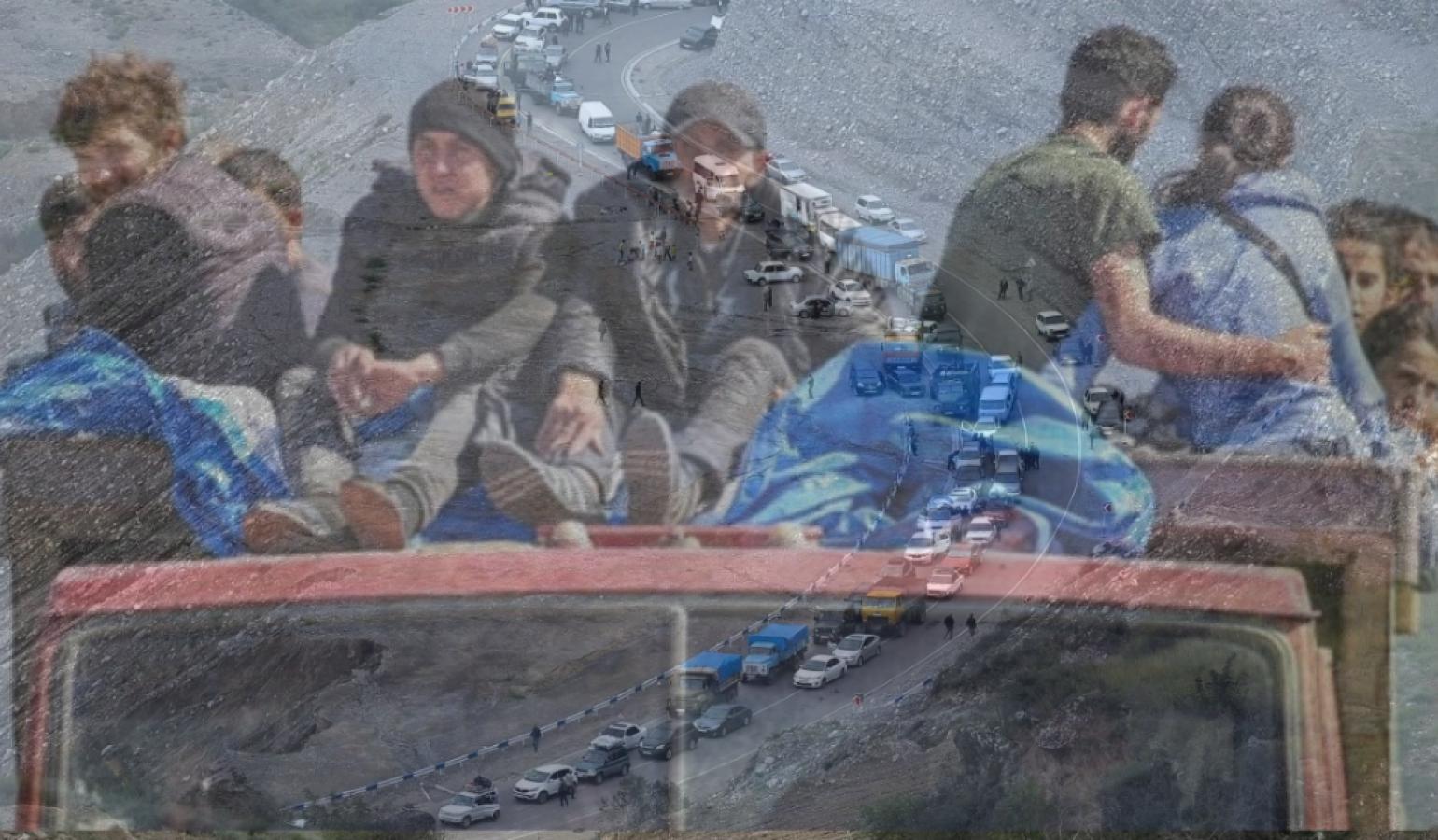
Siranush Sahakyan, Head of the Center for International and Comparative Law, answered Satik Seyranyan's questions within the framework of the 168.am "Pressing" program. The extensive interview addressed state-church relations, the reasons for Samvel Karapetyan's detention, decisions of the International Arbitral Tribunal, cases of execution of Armenian prisoners of war, the right of return for the people of Artsakh and Nikol Pashinyan's stance on this matter, real peace, the increase of Azerbaijan's military budget, the "Zangezur Corridor," Trump calling Armenia "Albania," the likelihood of this being intentional versus a slip of the tongue, and a number of other issues.
Church – Public Authority – Samvel Karapetyan
Sahakyan specifically noted that the seeds of the church-authorities confrontation were noticeable as early as 2018, when, although there was a civic initiative to have a new Catholicos, it was visible that this initiative had state support. "For instance, if we follow which media outlets and which public resources were most actively covering those events, the connection between civil society and the authorities becomes obvious," the human rights defender said.
Sahakyan does not see a call for violence in Samvel Karapetyan's statement supporting the church, which could have led to revolts or other dangerous actions in the country. "There were considerably more innocuous formulations here, which could overcome the threshold of criticism, and there was merely support for the Armenian Apostolic Church. However, we cannot see hate speech or a call for violence that could cause public unrest or lead to revolts and other dangerous actions. Here, we see the lawful exercise of freedom of speech. I should note that religious issues and relations between the church and the authorities are always considered matters of universal significance, and here, freedom of speech has a higher level of protection. I believe this is where the element of persecution arises, as it is the exercise of the right itself that has led to the punitive filing and confirmation of charges."
Sahakyan characterizes what is happening to Samvel Karapetyan as an attack on the individual, conditioned by his civic position, which was also combined with the use of an economic repressive toolkit. Businesses belonging to the individual have become a target of the state. In her opinion, what happened with the Electric Networks of Armenia (ENA) is the seizure of a business and private property.
The decision of the International Arbitral Tribunal regarding ENA is subject to mandatory execution. Nevertheless, the Prime Minister of Armenia, Nikol Pashinyan, has stated that the government will not execute this decision. According to Sahakyan, those who infringe upon the international legal order have existed, exist, and will exist. These infringements may cause relative crises, but they are temporary processes nonetheless. "I believe that the infringers also have an exhaustible resource, which, of course, can be applicable for a specific period, but in conditions of very dynamically changing relations, inexhaustible political resources simply don't exist. Yes, in this case, we have a decision from an emergency arbitrator, which is mandatory for execution, and this is not just the assertion of civil society representatives or experts; there is a clear regulation that states that the rulings of arbitration, including emergency arbitration, are also mandatory and must be executed by the recipient state."
Prisoners of War and the Right of Return
During the ongoing trials in Baku, the former Foreign Minister of the Republic of Artsakh, David Babayan, petitioned to summon the OSCE Minsk Group Co-Chairs as witnesses, while the former Deputy Commander of the Defense Army, David Manukyan, in turn, petitioned to summon the Prime Minister of Armenia, Nikol Pashinyan, as a witness or ensure his participation in the trial via video link. According to the human rights defender, the motions to question Nikol Pashinyan and the OSCE Minsk Group members are a tactical step. "The military-political leadership of Artsakh knew that these motions would be rejected, but they were still important so that their actions would not be qualified as terrorism, because if their actions were of a terrorist nature, then a different circle of accomplices should also be sought. The question arises: if these people were terrorists, how did the OSCE Minsk Group interact with them, how did other states negotiate and sign agreements with them, how did the Republic of Armenia sign the November 9, 2020 tripartite document on their behalf, and so on? I believe that submitting this motion had a very clear purpose: although the right to self-determination of Artsakh is being judged in the courts of Azerbaijan, it can never be considered a terrorist entity, otherwise all the Co-Chairs of the Minsk Group should also be tried," Sahakyan clarified.
The right of return is also documented in Armenian-Azerbaijani relations. The right of return is a political right and must be implemented collectively, Sahakyan noted, adding that political pressure must be applied to secure the right of return. "But instead, we see the Armenian authorities renouncing the right of return. I view Pashinyan's statement that the issue of the return of the people of Artsakh is closed as the antithesis of peace," the human rights defender added.
Responding to Nikol Pashinyan's statement that the return of the people of Artsakh is not realistic, Sahakyan countered: "If there is peace, it means there shouldn't be security fears, and the return of the people of Artsakh should be possible. In other words, if we say peace, then we must accept that there is a return of the people of Artsakh. I share the view that the return of the people of Artsakh is not realistic today, it is not possible, because the people of Artsakh would simply be physically annihilated. It is not possible because there is no peace and no prerequisites for building peace."